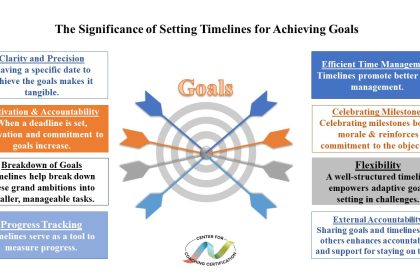
Coaching extends its benefits beyond individual growth, contributing to the success and competitiveness of organizations. This post delves into how coaching impacts leaders and organizations:
1. Leadership Development and Succession Planning
Coaching plays a critical role in leadership development and succession planning. By investing in coaching for leaders, organizations are cultivating a pipeline of competent and effective leaders who drive organizational success. Coaching helps leaders develop the skills, competencies, and self-awareness to lead with confidence, inspire others, and navigate complex business challenges. Additionally, coaching supports the identification and development of high-potential individuals, ensuring smooth leadership transitions and continuity.
2. Strengthened Organizational Culture and Values
Coaching contributes to building a strong organizational culture and reinforcing core values. Through coaching, leaders and employees align their actions and behaviors with the organization’s mission and values. Coaching promotes open communication, trust, and accountability, fostering a positive and inclusive work environment. When leaders actively engage in coaching, they serve as role models, reinforcing the desired culture and values throughout the organization.
3. Increased Innovation and Agility
Coaching fosters a culture of innovation and agility within organizations. By encouraging individuals to think critically, explore new ideas, and take calculated risks, coaching stimulates creativity and promotes a growth mindset. Coaches challenge individuals to question assumptions, consider alternative perspectives, and embrace change, leading to increased innovation, adaptability, and competitive advantage for organizations.
4. Talent Retention and Attraction
Coaching plays a crucial role in talent retention and attraction. In today’s competitive job market, organizations that invest in coaching demonstrate their commitment to employee growth and development. Coaching provides ongoing support, guidance, and opportunities for learning and advancement, which are highly valued by employees. Organizations that offer coaching as part of their talent management strategy can attract top talent, enhance employee engagement, and reduce turnover.
5. Improved Performance and Productivity
Coaching has a direct impact on organizational performance and productivity. By investing in coaching for employees at all levels, organizations can optimize individual and team performance. Coaching helps individuals set and achieve meaningful goals, overcome obstacles, and enhance their skills and competencies. As a result, employees become more engaged, motivated, and productive, leading to improved overall organizational performance.
6. Enhanced Employee Well-being
Coaching promotes employee well-being by addressing the holistic needs of individuals. Through coaching, individuals develop resilience, self-care practices, and strategies for maintaining work-life balance. Coaches provide a confidential and supportive space for individuals to explore personal challenges and develop coping mechanisms. By prioritizing employee well-being, organizations create a positive and healthy work environment that fosters employee satisfaction, reduces burnout, and promotes overall wellness.




